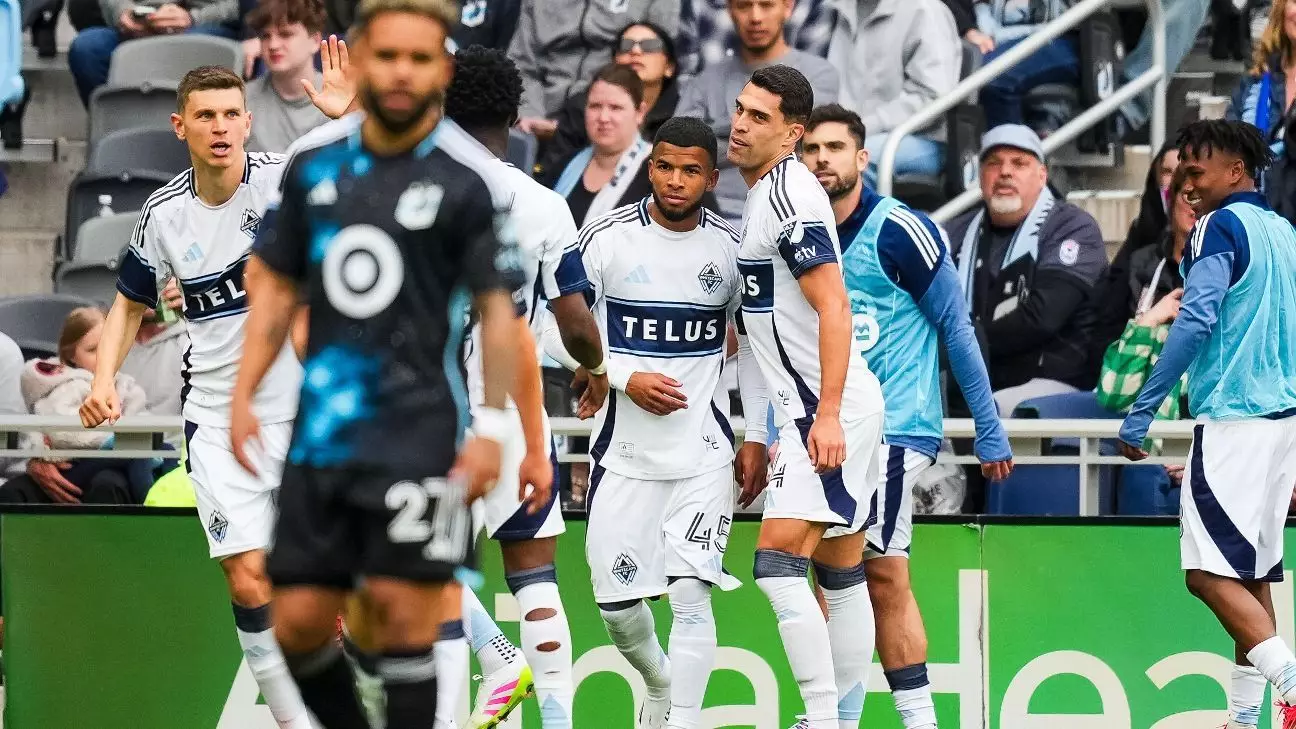Major League Soccer (MLS) has once again found itself grappling with the complex issue of discrimination in sports, following a reported incident during a match that took place between Minnesota United FC and the Vancouver Whitecaps. The altercation erupted in the dying moments of the game, which ended with a 3-1 victory for the Whitecaps. The 95th-minute altercation not only raises questions about on-field conduct but also highlights the larger issues of cultural sensitivity and player education within the league.
As the league swiftly announced that it would conduct a thorough investigation into the matter, one can’t help but wonder about the effectiveness of the existing measures in place to address such violations. In a world where society is increasingly intolerant of any form discrimination, the response from sports leagues should be equally robust. The MLS is at a pivotal crossroads, and the decisions made in the coming days may greatly influence its reputation and the safety of its athletes.
The Incident and Its Aftermath
The reported violation involved a verbal exchange that escalated between players Joseph Rosales of Minnesota and Emmanuel Sabbi from Vancouver. As tensions simmered on the pitch, referee Drew Fischer attempted to mitigate the situation by consulting both team managers and captains. However, the fact that Rosales was not penalized by the referee raises significant questions about the clarity, enforcement, and effectiveness of MLS’s Non-Discrimination Policy. If referees are unable or unwilling to act decisively, does it not send a message that such behavioral transgressions are tolerable?
Following the match, reports indicated that tempers flared even further, with Rosales allegedly shoving a Vancouver player as he exited towards the tunnel. This subsequent altercation not only demonstrates the immediate emotional fallout of the initial incident but also signifies a deeper systemic issue that permeates through the culture of competitive sports. As players remain under immense pressure both on and off the field, understanding what constitutes harassment or discriminatory behavior is vital, yet it is evidently not enough.
Mixed Responses and the Role of Education
In a joint effort to combat discrimination, MLS has sought to enact punitive measures against players implicated in similar incidents in the past. Highlighting this commitment, there have been recent suspensions handed out to players who have displayed unacceptable behavior. For instance, in November 2023, Philadelphia Union defender Kai Wagner faced a three-game suspension for derogatory remarks targeting New England Revolution’s Bobby Wood. These disciplinary actions, however, raise a crucial question: are punitive measures alone sufficient to foster meaningful change within a league, or must they be accompanied by educational efforts tackling the root causes?
To this end, MLS has embarked on a training initiative in collaboration with advocacy group Black Players for Change and the MLS Players Association. This educational program aims to equip players and staff members with the understanding needed to identify hurtful language, hoping to cultivate a culture of respect and inclusiveness. The program is comprehensive, requiring participation from everyone involved in the teams to ensure that a morally unambiguous standard is set.
Looking Ahead: The Path to True Inclusivity
As scrutiny around professional sports intensifies, the spotlight on how leagues like MLS handle issues of discrimination will continue to grow. The inquiry into the most recent incident should serve as an essential moment of introspection for MLS, especially in light of its ongoing attempts to promote diversity and combat discriminatory practices. The challenge lies not just in the enforcement of rules, but in nurturing an environment where harassment or discrimination is not just met with punishment but is actively discouraged and diminished through cultural change.
For the league’s reputation to remain intact, it must not only respond to incidents reactively but must foster a proactive approach that celebrates diversity and instills a sense of collective responsibility among its players, officials, and fans alike. By doing so, MLS not only honors the integrity of the sport but also aligns itself with broader societal values that advocate against discrimination in all forms. The road ahead is fraught with challenges, but committed action today can lead to a more inclusive and respectful sporting landscape tomorrow.

